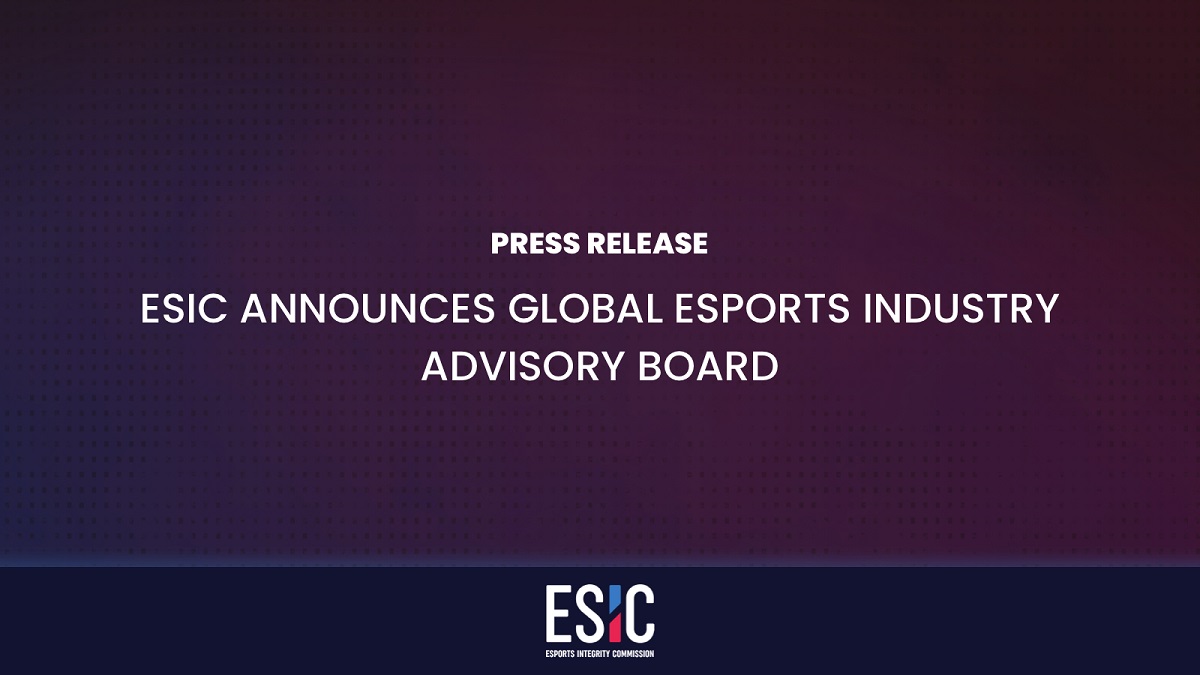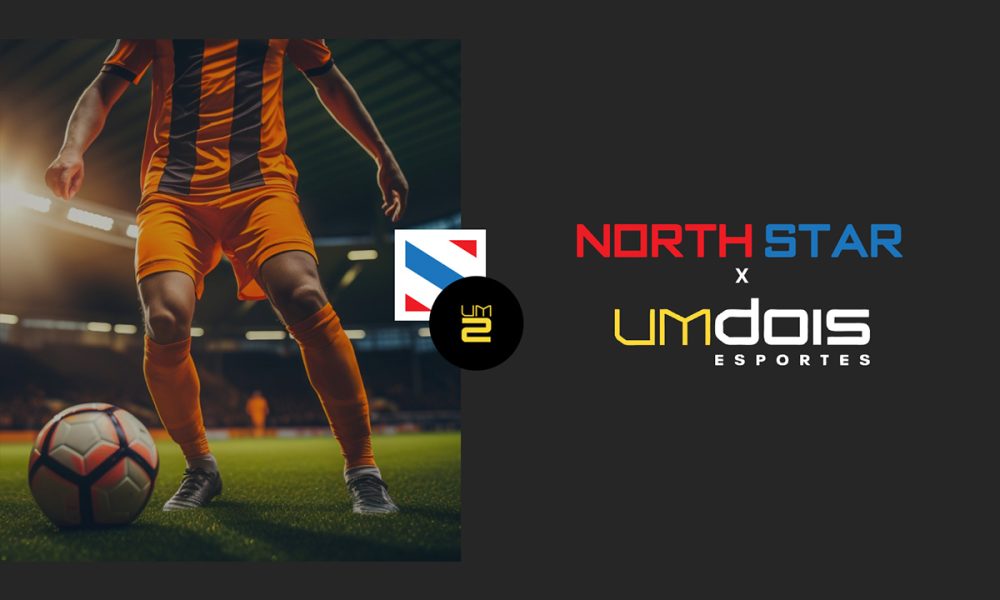

eSports
European Gaming: Esports round-table feature
The growing value of esports
Esports betting has exploded in popularity across the past year and shows no sign of slowing down, with a huge number of in-play markets now available to players. In this round-table feature, Alexandr Iaroshenko, CEO of BetBazar, Sergey Tsukanov, Head of Sportsbook at Betby and Rohini Sardana, Head of Product Propositions at SIS, discuss the driving forces behind the fastest growing vertical in sports betting.
Esports betting grew hugely during the pause in sports last year, but what factors are behind its continuing appeal?
Rohini Sardana: “The entertaining experience that esports betting offers is what ultimately keeps bettors coming back for more. The suspension of live sports last year undoubtedly helped to bring it to the attention of a wider audience, but its continued engagement would not be possible without a strong product in the first place. In fact, demand is as strong as ever for our content. Through our esports betting product, SIS Competitive Gaming has increased output of events by 800% compared to the same period last year, due to strong customer demand, with stream downloads for our events still very high. It is safe to say that esports betting has established itself within the wider sportsbook ecosystem and that demand continues to grow.”
Alexandr Iaroshenko: “Players had the time to get to know a new product during this time that they now love. The last year showed the need for entertainment and filler activity. This is largely as a result of timing, but our time to market also played a huge role here. We are very proud because even though this is a product that was enjoyed because other forms of entertainment were scarce, it continues to be enjoyed in significant numbers. It is a solid offering that was in the right place at the right time to kick off.”
FIFA and NBA2K are particularly popular as a betting option for sportsbook customers, but is there a divide between these disciplines and followers of other Esports events?
Alexandr Iaroshenko: “People want to bet on live events and it becomes vital that they get their results quickly. This is what has helped esports’ popularity to grow so rapidly. When it comes to games like League of Legends and Defence of the Ancients – which aren’t based on sports – results may vary largely depending on different demographics. The new generation of player is more focused on the ‘computer game’ elements of esports, such as Battle Royale or Player Unknown’s Battlegrounds – if they like those types of games, they will still bet on those even when they aren’t into sports. However, it is fair to say that betters of esports that are based on traditional sports like football and basketball are much more reliable bettors that those that follow LoL or DoTA.”
Sergey Tsukanov: “Of course, the most popular sports have always attracted players that differ from the followers of more traditional esports markets. FIFA and NBA2K markets, perhaps unsurprisingly, have a much bigger following amongst soccer and basketball fans than from followers of other esports markets, and for this reason, FIFA and NBA2K have become a staple of our classic market offering. That said, it must be noted that despite their differences, players at both ends of the spectrum universally prefer it when competitive games are played without real players, instead using AI-led technology to add to the random nature of the results.”
Rohini Sardana: “The core elements of the product remain the same, regardless of whether you are offering FIFA 21 matches or first-person shooter events. The availability of quality live streams and a variety of markets, all underpinned by strong integrity, are the key fundamentals that are required for every single esports betting opportunity. Of course, sports-themed games are more likely to resonate with existing sports bettors given the familiar characteristics. We have seen great success with our NBA2K head-to-head games given basketball’s global appeal. Moving forward, we are planning additional titles to help us expand our content offer, which will further help operators drive profitable revenues.”
What are the challenges involved in offering live streaming and in-play betting across esports events taking place 24/7, across the world?
Sergey Tsukanov: “The challenges vary in different locations, but they are the same for all elements of iGaming, not just esports. Internet penetration, mobile play, latency of streaming, and so on. However, the benefits of providing clear, accessible, and most importantly, popular content for users, clearly have a positive impact for both products and turnover. This is the key to maintaining our audiences and attracting new users.”
Rohini Sardana: “The lack of resources that have the specialist knowledge of esports betting appears to have been one of the main challenges for operators. Esports betting solutions are still in the early stages of the product lifecycle and there is an element of risk for sportsbooks trading on such events, particularly the potential for savvy esports bettors getting the upper hand. Partnering with third party providers such as SIS, that have relevant knowledge of esports is highly advantageous, giving operators the confidence and trust that the products being offered are reliable and relevant. At SIS we have more than 30 years’ experience of live streaming and data distribution, and we partner with 400 customers across 45 countries, which gives operators peace of mind that SIS Competitive Gaming is an esports betting product they can depend on. We have low latency live streams available for our content, running throughout the day to serve our global customer base. The frequent and high uptime betting opportunities have proven to be popular with both operators and bettors across multiple markets in recent months.”
Alexandr Iaroshenko: “This is our speciality and we can take two approaches. Firstly, there is live streaming. There are lots of challenges that an operator needs to be prepared for. Organising the right people and level of play to make the product popular and keep it running 24/7 can be difficult. There needs to be a product on tap that can constantly engage players. One focus should be on growing our existing player base and the other should be retaining them. In terms of organising these events, we have partners in Europe that have created their own Esports academy to help develop the players of the future and create top-class tournaments and other activities. Secondly, there is in-play. This is the odds and infrastructure to supply sportsbook. We have a team placed to constantly trade and price. It can be challenging to provide underdog or favourites for events, which motivates players to play. We work hard to deliver this and the latest in tech to price these games like never before. This involves investing in the best in maths models to ensure we can deliver.”
How is AI having an impact, both from an odds-setting perspective and in producing human-versus-AI content?
Rohini Sardana: “Accessibility and accuracy of data plays a key role in establishing a betting product’s usability. Esports games are visually rich and provide more data points than sportsbooks would have consumed with other sports content. This vast amount of data needs to be processed to create a good user experience, and processing vast amount of data, efficiently, requires the use of technological advancements such as AI.”
Alexandr Iaroshenko: “In terms of betting, we have mathematical models which are stats-driven and give us a concrete prediction via an algorithm. This involves so many variables and no fewer than 15,000 events every month, which enables us to constantly learn and evolve to better understand and price games. As a result, we are able to provide some of the most accurate odds in the business. We take this very seriously and when our traders join, they go through a vigorous player schedule to prepare. AI verses live human bears a strikingly similarity to RNG vs. live action. In this instance, the operator is relying on an RNG bot originally created by EA Sports, which has nothing to do with the world of betting. It’s simply a black box inside the game that determines the action. Players simply have less trust in this.”
Sergey Tsukanov: “At Betby, we primarily employ AI technology to acquire live data. We want to use AI to create mathematical models to produce enhanced odds, but when generating odds, it doesn’t differ too much from the traditional aspects. What does set AI apart is generating results with innovative AI software to ensure that our products are available 24/7 across all markets, providing users with the best possible environment to place their bets, all the time.”
What can the traditional sports betting world learn, if anything, from the new breed of quick-fire esports betting opportunities?
Sergey Tsukanov: “If you compare traditional sports betting markets with these modern AI-led esports solutions, you can see a few differences. The new markets are available around the clock, utilise innovative mathematical models that make the games more efficient, and provide a variety of previously unseen markets for users to enjoy – there really is something for everyone. For me, it’s not even about betting, and more about the phenomenon of soccer and basketball losing popularity amongst young people. Officials really need to look into how to attract young people to soccer again, and they could do this with faster game formats or the equivalent of an All-Star match. As for betting, with the current format of soccer and basketball competitions locked securely in place, it’s very difficult to invent something new. Instead, we have explored making our platform more efficient and user-friendly to help players place bets as efficiently as possible, and it has paid off.”
Rohini Sardana: “For sportsbooks, offering esports betting opportunities has now become a necessity. The strong demand for this type of content and the resulting engagement levels means that these events cannot be ignored. Sportsbooks already value quick-fire betting opportunities that horse and greyhound racing and virtual sports offer, and esports events can provide a similar format with results within minutes of a bet being placed.”
Alexandr Iaroshenko: “In sports betting, we see a lot of hype for a lot of products and, more often than not, this burns out quickly. Looking at the most popular esports titles at the moment including Counter Strike, LoL and DoTA – these are now making esports history and I believe they’re here to stay. Live sports and esports have reached a synergistic co-operative relationship, where, for example, esports supports the hype for an overall event. There is no threat that esports will cannibalise sports. In fact, what we have seen is that it works as a complementary product.”
eSports
R&D rethink needed for sportsbooks to harness esports’ power

 Esports betting is still grappling with a perception problem amongst operators. Despite the leaps and bounds in product development made by suppliers – particularly in the last two years – esports hasn’t shaken off the image built in the late 2010s.
Esports betting is still grappling with a perception problem amongst operators. Despite the leaps and bounds in product development made by suppliers – particularly in the last two years – esports hasn’t shaken off the image built in the late 2010s.
Our good friend, Oliver Niner, Head of Sales at PandaScore, has been kind to share the below article with us.
There’s scepticism around esports betting’s value, how well it can actually perform and what’s needed to make it appeal to bettors. A big part of that comes down to perception, which shapes the research and development (R&D) choices made by each operator.
Self-fulfilling prophecy?
Operators who have put the research and development (R&D) resources into esports are seeing excellent growth, while others are still treating it like part of a long tail. The lack of a uniform approach to esports often translates into hesitancy to be bullish and invest in esports.
Whereas in the United States, post-PASPA sports betting has exploded and operators are seeking to capture as much territory and market share as possible because in most cases, you switch the lights on and the money comes in. It’s, of course, good business sense to take opportunities like this – you can apply the same templates used elsewhere on an incredibly lucrative market.
This kind of approach has been attempted for esports and hasn’t found the same success. Granted, the legislation for betting on esports has been somewhat slower than that of sports betting and iGaming.
However, bullish operators have acknowledged the fact that esports hasn’t found the same success in regulated states and asked what can be done differently, while for others, esports has been thrown into the too-hard basket or relegated to the bargain bucket.
For the latter, the fate of the esports vertical becomes a self-fulfilling prophecy – especially if an operator already using a budget esports product that throttles its very growth.
It takes two to tango
When esports is discussed in broader betting circles, you’ll often hear different versions of the same talking point: the problem with esports is no one is doing it well, it doesn’t innovate.
This argument is a case of the pot calling the kettle black. Esports is a driver of innovation, and it is sportsbook R&D that is holding it back.
Multiple suppliers on the market are investing significant resources into R&D, and bullish operators are leveraging these product innovations to acquire new customers and create engagements made for the internet age.
There are understandable reasons why sports betting doesn’t innovate. It’s largely because operators focus on acquisition, entering new territories and spending money on data rights. But the actual R&D on sportsbook products is left lacking, with ever-increasing cost-per-acquisition (CPA) numbers a clear symptom of this.
It means that if an operator does decide to use or acquire an esports specialist supplier but does little to cater its product and attempts to just lay the sports betting template over the top, of course performance will be throttled.
It’s like putting a Ferrari engine in a Prius – no offence to Toyota or Prius owners.
The same problem exists on the platform supplier front. Platforms are understandably focused on compliance and getting customers live, not necessarily improving models or their products.
Even the idea that if you just acquire an innovative company the problem is solved or you have found the solution, doesn’t hold water. In many cases, the company is acquired and plenty of noise is made about it, but there’s little organisational investment in R&D afterwards.
It’s not just in esports
These problems extend to customer acquisition and marketing for most emerging markets, not just esports. There’s a rush to use the same old playbook in newer sectors because it’s easy.
The fantasy vs. house sector in the US is already experiencing an acquisition arms race. As analyst Dustin Gouker points out, deposit match bonuses for new users on fantasy vs house products have jumped from $100 to as high as $500 in some places.
This is the same race that played out in sports betting and despite the costs, there’s little effort from most operators to try something different. There’s less work when you just put the same acquisition template on an emerging sector and call it a day. This seems to be an accepted practice in the industry, for better or for worse.
Esports betting success requires ongoing dialogue
Rather than attempting to wedge esports into hegemonic sportsbook approaches, sportsbooks need to take a completely unique approach.
The fact is the betting sector has barely scratched the surface – communities of esports fans are still dormant. Canadian operator Rivalry has built a successful, esports-first business by embracing the ever-changing internet culture that esports inhabits. French esports organisation Karmine Corp recently sold out a 30,000-person stadium for an event with no prize money up for grabs.
Innovative products developed on the supplier side like microbetting and betbuilders are only half of the equation.
Maximising esports revenues requires institutional investment, ongoing R&D and collaboration between suppliers and operators to create products and experiences. This includes having staff on the operator side that can drive and push the product further, and crucially, rethinking current sportsbook strategies and practices.
Building experiences for betting’s greatest emerging market – one that caters to your future core audience – takes investment, innovation and a willingness to experiment. If the industry wants to make the most of the Millennial and Gen Z audience that will become its primary customers, investment into R&D and close collaboration between suppliers and operators is needed. Many hands makes light work.
eSports
ESIC Announces Establishment of Global Esports Industry Advisory Board

The Esports Integrity Commission (ESIC) is pleased to announce the establishment of its Global Esports Industry Advisory Board, designed to enhance integrity and ethical practices across the esports landscape. The Advisory Board will serve a pivotal role by providing expert advice to ESIC’s Chief Executive Officer on a range of critical industry issues.
The primary function of the Advisory Board is to create a robust framework for integrity and fairness, setting a global benchmark for ethical conduct and fair competition in esports. The board will offer strategic insights, help shape policies governing fair play, liaise with key industry stakeholders, and act as ambassadors advocating for ethical practices.
ESIC has appointed two highly esteemed members to inaugurate this board:
- David Neichel, Senior Vice President of Public & International Affairs at ESL FACEIT Group (EFG), joins the Advisory Board with over fifteen years of experience in the video games industry, including significant roles at Activision-Blizzard and Electronic Arts. David’s profound impact on international and public affairs initiatives makes him an invaluable addition to the board.
- Robbie Douek, CEO of BLAST, also joins the Advisory Board, bringing a wealth of experience from his roles at Google and Disney, along with his leadership through major acquisitions. Robbie is celebrated for his strategic leadership and his instrumental role in elevating esports to a significant global entertainment platform.
The formation of the Advisory Board is an engagement that underscores the commitment of its members to upholding and promoting the highest standards of integrity within the esports industry. The board will meet as required to address strategic challenges and ensure that ESIC’s initiatives effectively meet current and future industry needs.
“Both David and Robbie bring a remarkable depth of knowledge and a passion for advancing the integrity of esports,” said Stephen Hanna, CEO of ESIC. “Their expertise will be crucial as we navigate the evolving landscape of esports and strive to maintain the integrity that our community expects and deserves.”
Robbie Douek, CEO at BLAST, said: “I’m honoured to be given the opportunity to support the Global Esports Industry Advisory Board and ESIC in their ambition to create the best and fairest environment possible for players, teams and fans.”
David Neichel, Senior Vice President of Public & International Affairs at ESL FACEIT Group (EFG) also commented: “It is a true honour to join the Global Esports Industry Advisory Board and support ESIC’s successful journey. Fairplay and integrity are at the core of esports. We owe it to the players and to the fans and for a better endemic industry governance”
The post ESIC Announces Establishment of Global Esports Industry Advisory Board appeared first on European Gaming Industry News.
eSports
North Star Network Acquires Um Dois Esportes

North Star Network has acquired Um Dois Esportes, a sports coverage and analysis site created from the merger of Gazeta Do Povo and Tribuna do Paraná in 2020.
Julien Josset, co-founder of North Star Network, said: “Thank you to the team at GRPCOM for their faith in us to take the brand forward. Um Dois Esportes is an established and renowned site in Paraná State, and we’re excited about the challenge of developing this asset.
“We’re happy to maintain the collaboration with the existing editorial team, and look forward to working with them, bringing our unique NSN approach, to take UDE forward.”
NSN’s signing of Um Dois Esportes is the media house’s fourth acquisition of 2024, following the recent deals to purchase UK-based SportsMole and MrFixitsTips, as well as Chilean site AlAireLibre, which was announced in March.
The latest addition to the North Star media portfolio joins existing assets including Top Mercato, Afrik-Foot, and Vringe. The Paris-based company already oversees a significant Brazilian operation, delivering over 6 million sessions per month, from the likes of Trivela, Premier League Brasil and Lakers Brasil.
NSN will retain Curitiba-based journalists from the Um Dois Esportes legacy team to maintain the asset’s unique tone and popular coverage of the Paraná sports scene across site and social.
Rafael Mello, Director of GRPCOM, said: “We were surprised by the interest, and initially had no intention of selling Um Dois, but as the conversations evolved, we realised this was a serious group with good intentions. We were very happy to see our project being valued by a large international group and going global, demonstrating the quality of the content we produced.
“We’re also proud that North Star inherited our journalists, who are truly responsible for the success of the product we offer readers every day.”
-

 gaming2 years ago
gaming2 years agoODIN by 4Players: Immersive, state-of-the-art in-game audio launches into the next generation of gaming
-
EEG iGaming Directory7 years ago
iSoftBet continues to grow with new release Forest Mania
-
News6 years ago
Softbroke collaborates with Asia Live Tech for the expansion of the service line in the igaming market
-
News5 years ago
Super Bowl LIII: NFL Fans Can Bet on the #1 Sportsbook Review Site Betting-Super-Bowl.com, Providing Free Unbiased and Trusted News, Picks and Predictions
-
iGaming Industry6 years ago
Rick Meitzler appointed to the Indian Gaming Magazine Advisory Board for 2018
-
News5 years ago
REVEALED: Top eSports players set to earn $3.2 million in 2019
-
iGaming Industry6 years ago
French Senator raises Loot Boxes to France’s Gambling Regulator
-
News6 years ago
Exclusive Interview with Miklos Handa (Founder of the email marketing solutions, “MailMike.net”), speaker at Vienna International Gaming Expo 2018










